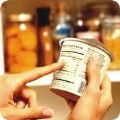|
Today, there are abundant ways to get your water. Tap water, mineral water, spring water, fitness water, water from bottles, water filters, water coolers, and the list goes on and on. What works? What are the differences among them? How much do they cost? Here’s some help.
Bottled Water
It’s becoming more and more popular, despite costing a dollar or two per bottle (and generating a lot of waste). There are many kinds of bottled water.
Spring water comes from underground water springs. It receives the same filtration treatment that all water receives, including tap water, but that’s it. It is the more natural water and is typically characterized as tasting more refreshing.
Mineral water contains minerals or other dissolved substances that alter its taste or give it therapeutic value. Salts, sulfur compounds, and gases are among the substances that can be dissolved in the water. Mineral water, which is often effervescent, and can be prepared or can occur naturally.
The source of bottled water must be listed on its label. Not all bottled water comes from a spring. Many bottles of water contain nothing more than tap water, yet still cost up to $3.00 per bottle. One way to know that bottled water is actually tap water is to read the label. Look for "municipal" sources or words like "public water source" for clues. Dasani and Aquafina brands of bottled water are regular tap water, for example.
Another option is flavored water. Gatorade recently launched its own line of flavored fitness water called Propel, but there are many other options. These waters go through a similar process to mineral water, adding not only minerals and vitamin fortification, but also a hint of artificial flavoring. It’s not much different than mineral water; its main attraction is for individuals who do not like the taste of plain water. Flavored water costs nearly the same as regular bottled water.
Filters
Water filters are a more economically sound purchase. Filters come in several forms; the most popular choices are a filtered water pitcher to be stored in your fridge, or an attachment to your sink faucet. The filters block several elements of tap water, including zinc, chlorine, copper, lead, sediment and other materials, up to 99 percent of each item that comes through your sink. (These additives come from the pipes they flow through, so they are not in bottled spring water). Filters can be purchased for anything from $20 to $60, and are great alternatives to buying bottled water all the time.
Water coolers
Thought these were only for the office? While they require a bit more maintenance than filters, water coolers are another alternative to bottled water. The cooling units are more expensive to buy up front, (the cheapest ones start at $100) but in the long run, will save you money. Five-gallon jugs can be purchased for less than $10 and they equate to 32 regular size bottles of water (20 ounces). Plus, companies will regularly bring you new jugs at your convenience.
The choice is yours, between bottled, flavored, filters or coolers; just make sure you’re drinking 8-12 cups per day. Find out what works best for you and stick with it! It could be key to reaching your nutritional goals.
| 





